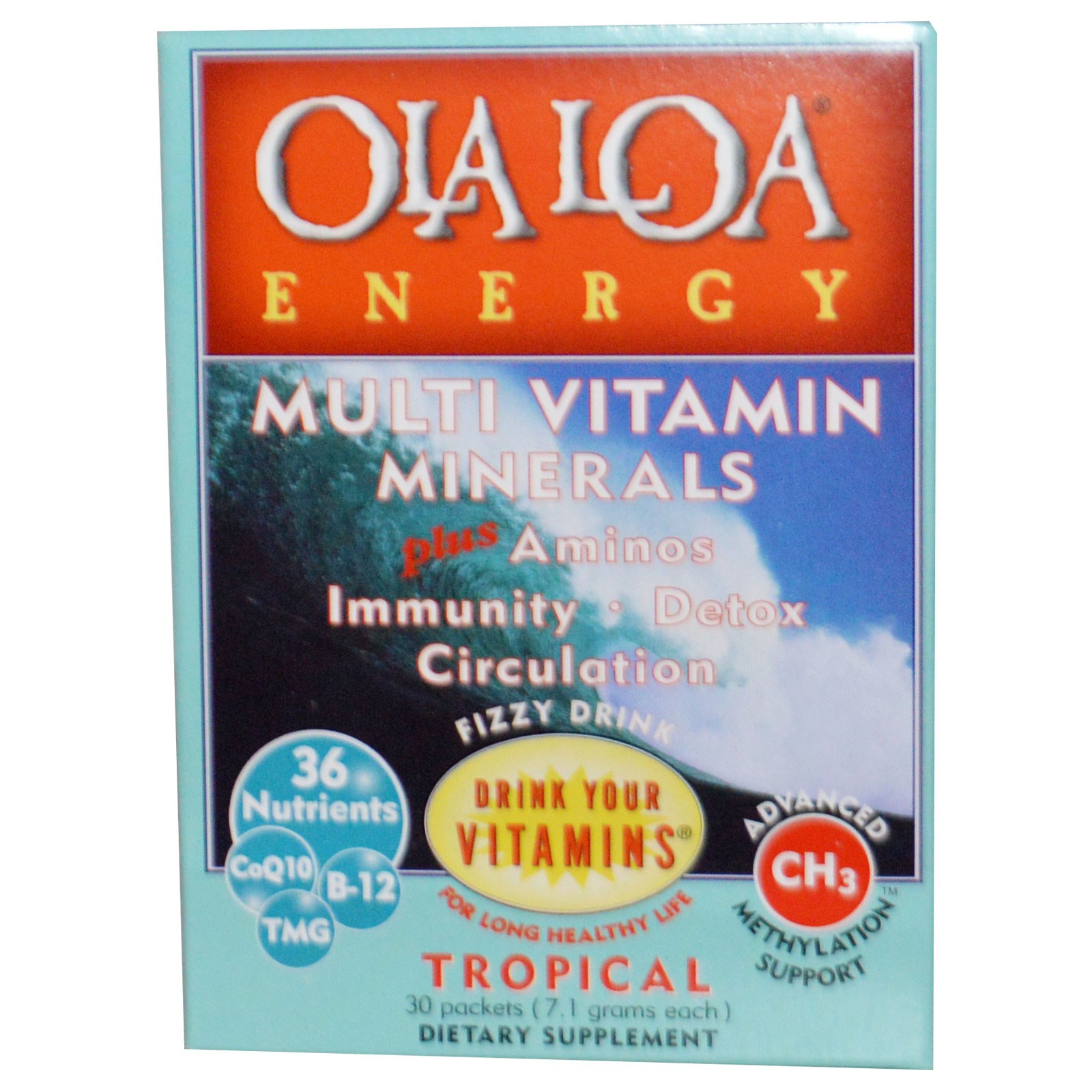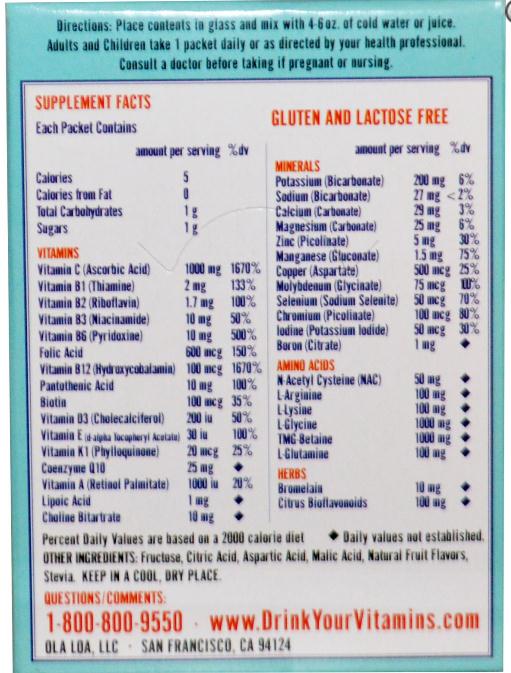| Vitamin C | Vitamin C is an antioxidant found in fruits and vegetables. It is important for your skin, bones, and connective tissue. It promotes healing and helps the body absorb iron. |
|---|
| Vitamin B1 | Vitamin B1 also known as Thiamine or Thiamin is a water-soluble vitamin, it is part of the B vitamin family. B vitamins support adrenal function, help calm & maintain a healthy nervous system, and are key for metabolic processes. |
|---|
| Vitamin B2 | VitaminB2 is used for preventing low levels of vitaminB2 (riboflavin deficiency), cervical cancer, and migraine headaches. It is also used for treating riboflavin deficiency, acne,muscle cramps, burning feet syndrome, carpal tunnel syndrome, and blood disorderssuch as congenital methemoglobinemia and red blood cell aplasia. |
|---|
| Vitamin B3 | As a member of B-complex vitamins, niacin aids in the normal functioning of the human digestive system, promoting a healthy appetite, properly functioning nerves, and a glowing skin. Vitamin B3 is used by your body to turn food into energy. |
|---|
| Vitamin B6 | Vitamin B6 is used for preventing and treating low levels of pyridoxine (pyridoxine deficiency) and the “tired blood” (anemia) that may result. It is also used for heart disease; high cholesterol; reducing blood levels of homocysteine, a chemical that might be linked to heart disease; and helping clogged arteries stay open after a balloon procedure to unblock them (angioplasty). |
|---|
| Folic Acid | Folic acid helps your body produce and maintain new cells, and also helps prevent changes to DNA that may lead to cancer. Folic acid is needed for the proper development of the human body. It is also used to prevent heart disease |
|---|
| Vitamin B12 | Vitamin B12 is applied to the skin either alone or in combination with avocado oil for psoriasis and eczema. |
|---|
| Pantothenic Acid | People apply dexpanthenol, which is made from pantothenic acid, to the skin for itching, promoting healing of mild eczemas and other skin conditions, insect stings, bites, poison ivy, diaper rash, and acne. |
|---|
| Biotin | Biotin, also known as Vitamin B7 and Vitamin H is used in treating and preventing hair loss, brittle nails, skin rash in infants, diabetes, and mild depression. |
|---|
| Vitamin D3 | Vitamin D3 can be taken as a supplement to improve overall health or used to treat osteoporosis. |
|---|
| Vitamin E | Vitamin E is an important vitamin required for the proper function of many organs in the body. It is also an antioxidant. This means it helps to slow down processes that damage cells. |
|---|
| Vitamin K1 | Vitamin K1 is used to treat and prevent low levels of certain substances that your body naturally produces. These substances help your blood to thicken and stop bleeding normally. |
|---|
| Coenzyme Q10 | CoQ10 can be derived from mackerel and herring tissue and can be applied topically, in skin creams, or ingested through daily supplements. |
|---|
| Vitamin A | Vitamin A, also called retinol, helps your eyes adjust to light changes when you come in from outside and also helps keep your eyes, skin and mucous membranes moist. |
|---|
| Lipoic Acid | Alpha lipoic acid is an antioxidant that our bodies produce naturally and that is found in food. It can be taken as a dietary supplement. |
|---|
| Choline Bitartrate | Energy Booster - Maintains Healthy Liver and Brain Function Amongst Other Benefits |
|---|
| Potassium | Potassium is a very important mineral for the human body. |
|---|
| Sodium | Sodium is an element that the body needs to work properly. Salt contains sodium. The body uses sodium to control blood pressure and blood volume. Sodium is also needed for your muscles and nerves to work properly. |
|---|
| Calcium | Calcium is a mineral that is an essential part of bones and teeth. The heart, nerves, and blood-clotting systems also need calcium to work. |
|---|
| Magnesium | Magnesium is required for the proper growth and maintenance of bones. Magnesium is also required for the proper function of nerves, muscles, and many other parts of the body. |
|---|
| Zinc | Zinc is used for boosting the immune system, treating the common cold and recurrent ear infections, and preventing lower respiratory infections. |
|---|
| Manganese | Manganese is an essential nutrient involved in many chemical processes in the body, including processing of cholesterol, carbohydrates, and protein. |
|---|
| Copper | Copper is also used for improving wound healing, and treating osteoarthritis and brittle bones (osteoporosis). |
|---|
| Molybdenum | Molybdenum works in the body to break down proteins and other substances. Molybdenum deficiency is very uncommon. |
|---|
| Selenium | Making special proteins, called antioxidant enzymes, which play a role in preventing cell damage |
|---|
| Chromium | Chromium helps to move blood sugar (glucose) from the bloodstream into the cells to be used as energy and to turn fats, carbohydrates, and proteins into energy. |
|---|
| Iodine | Iodine reduces thyroid hormone and can kill fungus, bacteria, and other microorganisms such as amoebas. A specific kind of iodine called potassium iodide is also used to treat (but not prevent) the effects of a radioactive accident. |
|---|
| Boron | Boron is used for building strong bones, treating osteoarthritis, as an aid for building muscles and increasing testosterone levels, and for improving thinking skills and muscle coordination. |
|---|
| N-Acetyl Cysteine | N-acetyl cysteine treats acetaminophen (Tylenol) poisoning by binding the poisonous forms of acetaminophen that are formed in the liver. It is also an antioxidant, so it may play a role in preventing cancer. |
|---|
| L-Arginine | May Increase Blood Flow and Stimulte the Release of Growth Hormones |
|---|
| L-Lysine | Wide Range of Function Including: Collagen Formation, Energy Production, and Immune Health |
|---|
| L-Glycine | Glycine is used for treating schizophrenia, stroke, benign prostatic hyperplasia (BPH), and some rare inherited metabolic disorders. |
|---|
| Tmg-Betaine | Betaine hydrochloride is a powerful digestive aid for people who may have been privy to a poor diet, prolonged dehydration and generalized stress. It has also been shown to offer digestive support to perimenopausal women and elderly individuals. |
|---|
| L-Glutamine | Glutamine might help gut function, the immune system, and other essential processes in the body, especially in times of stress. |
|---|
| Bromelain | Used for reducing swelling (inflammation), especially of the nose and sinuses, after surgery or injury |
|---|
| Citrus Bioflavonoids | Immune system support |
|---|
| Fructose | A yellowish to white, crystalline, water-soluble, levorotatory ketose sugar, C 6 H 12 O 6, sweeter than sucrose, occurring in invert sugar, honey, and a great many fruits: used in foodstuffs and in medicine chiefly in solution as an intravenous nutrient. |
|---|
| Citric Acid | Powerful Antioxidant - May Help Fight Cancer and Cardiovascular Diseases |
|---|
| Aspartic Acid | Like all amino acids, your body can use aspartic acid to provide your cells with energy; the cells burn it to generate ATP, or adenosine triphosphate, which is a cellular energy currency. While aspartic acid is useful, it’s not essential in the human diet — your body makes it from a molecule called oxaloacetate, which you produce any time you metabolize fuel, regardless of whether the fuel is carbohydrate, protein or fat. |
|---|
| Malic Acid | Taking malic acid supplements is beneficial for conditions such as fibromyalgia and chronic fatigue syndrome. It can help with oral hygiene as well. |
|---|
| Natural Fruit Flavors | Both artificial and natural flavors contain chemicals. The distinction between natural and artificial flavorings is the source of chemicals. |
|---|
| Stevia | Natural Low Calorie Sweetener |
|---|




Reviews
There are no reviews yet.